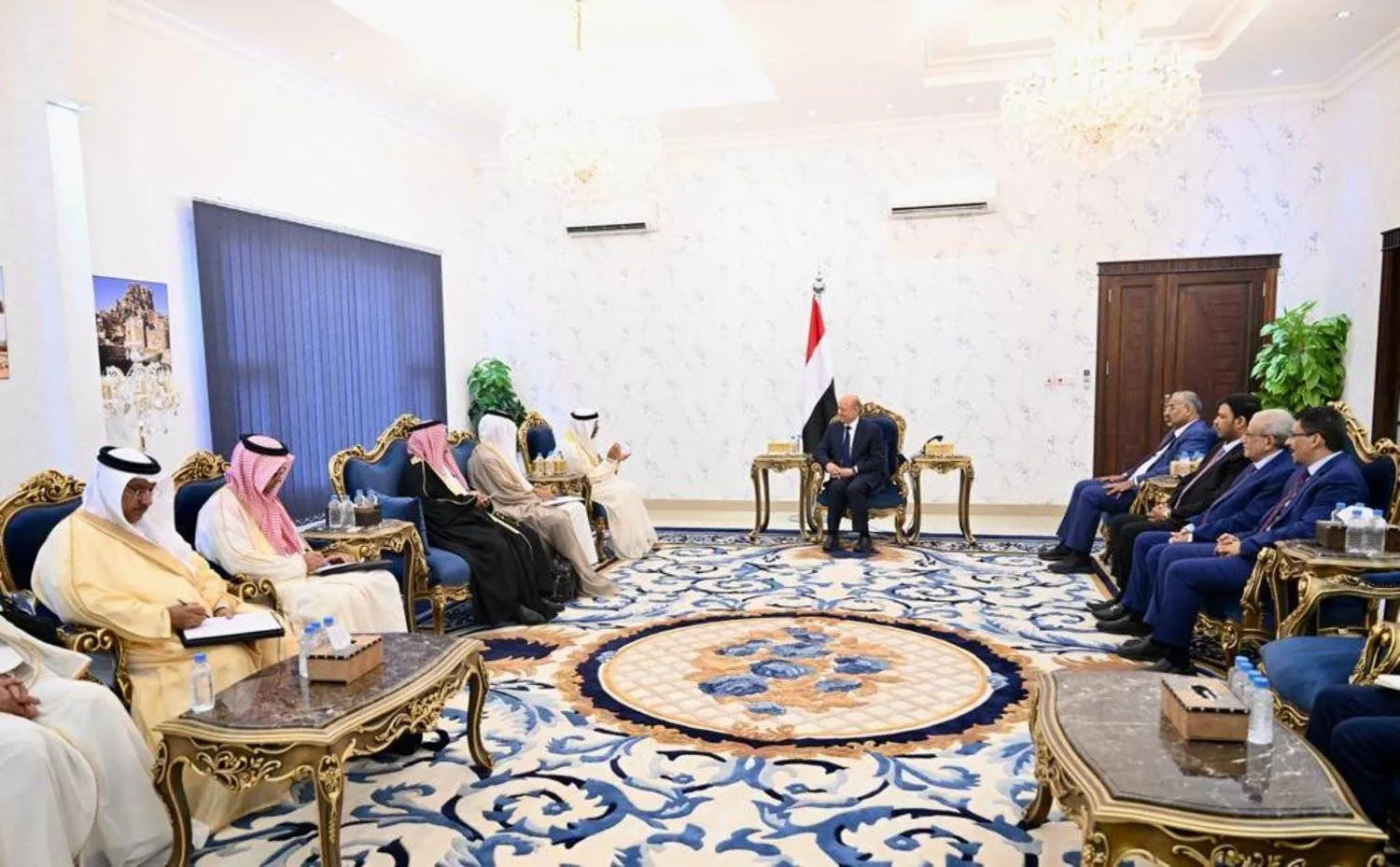Dr. Rashad Al-Alimi, the head of Yemen’s Presidential Leadership Council (PLC), received Jasem Albudaiwi, the Secretary-General of the Gulf Cooperation Council (GCC), in the interim capital of Aden on Thursday, in the first such visit in approximately eight years.
During their meeting, Al-Alimi and Albudaiwi discussed the strategic partnership between the GCC and Yemen.
The meeting with Albudaiwi and his accompanying delegation took place at the Presidential Palace.
Al-Alimi briefed the GCC secretary-general and attending delegates on developments in Yemen.
He tackled the latest developments related to the mediation efforts led by the Kingdom of Saudi Arabia to renew the ceasefire and build upon it for the launch of a comprehensive political process that meets the aspirations of the Yemeni people for peace, stability, and development.
The PLC leader also spoke about the violations and infringements committed by Houthi militias, their overt support for terrorist organizations, and the regional and international pressures required to end the prolonged humanitarian suffering in Yemen.
Al-Alimi, on behalf of himself, PLC members, and the Yemeni government, expressed profound gratitude and appreciation to the GCC for its stance regarding Yemenis and their constitutional legitimacy.
Throughout various phases, the GCC has helped Yemen confront risks that threaten its identity and national economy following the coup by the Iran-backed Houthi militias.
Al-Alimi commended the support provided by the GCC to the PLC and the legitimate government, as well as all efforts aimed at achieving peace and stability in the country under the Gulf Initiative and its executive mechanism, the outcomes of the National Dialogue, and relevant international resolutions, especially Resolution 2216.
For his part, Albudaiwi reaffirmed the GCC’s consistent stance in supporting UN efforts to achieve a comprehensive peace in Yemen, based on the three references: the Gulf Initiative and its executive mechanism, the outcomes of the National Dialogue, and UN Security Council Resolution 2216.
The secretary-general also reiterated support for the implementation of the remaining provisions of the Riyadh Agreement.
Albudaiwi acknowledged the efforts made by Saudi Arabia and Oman to preserve Yemen’s sovereignty, unity, territorial integrity, and independence, emphasizing the support of GCC countries for the PLC in achieving security and stability in the country.
He ultimately stressed the significance of the strategic partnership between the GCC and Yemen.









